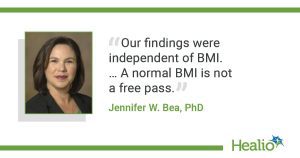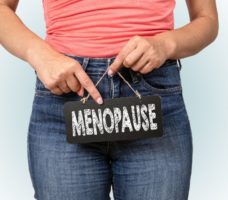Menopause is a stage in women characterized by a progressive drop in the level of estrogen, which according to research, is a hormone that offers women about 30% protection against cardiovascular or heart-related diseases like High blood pressure, stroke, and heart attacks.
The menopausal stage per se is not a disease condition associated with cardiovascular incompetence, but the associated hormonal changes are what increase the risk factors associated with cardiovascular problems.
Estrogen has been associated with a certain group of lipoproteins called High-density lipoproteins – which helps to mop up cholesterol from the blood and return them to the liver, but as menopause encroaches through the transitory process, the production of estrogen and other follicles stimulating hormone begin to reduce drastically until all the ovarian functions cease together with the accompanying effects they produce in the women’s body – notably is the increased risk of cardiovascular diseases ordinarily cushioned by the estrogen.
Estrogen level is directly related to High-density Lipoproteins (HDL) and inversely associated with Low-density lipoproteins (LDL); as already explained earlier, an increase in High-density lipoproteins (HDL) means an increase in good cholesterol and lipids and automatically means a healthy heart, while a decrease in HDL in the associated increase in LDL increases in bad cholesterol which causes fat depositions in the arterial walls and invariably increasing risks of developing cardiovascular diseases like high blood pressure, stroke and heart attack.
According to past research, women undergoing menopausal transition usually embrace Hormone Replacement Therapy (HRT), where artificial estrogen and progestin are administered to manage the symptoms associated with menopause like hot flashes, vagina dryness, etc., and most importantly, reduce the risk of cardiovascular diseases.
Recent studies have shown the reverse of the expected outcome of Hormone Replacement Therapy as the results show a significant increase in the risk of developing breast cancer, blood clots in the lungs and legs, heart attack, and stroke; nor did it offer help in managing osteoporosis or reduced the risk of developing colonic cancer in menopausal women.
More recent studies have supported the increased risks associated with the HRT option available for menopausal women against the supposed benefits it offers, and thus women undergoing menopause transition have been advised to seek alternatives that explore managing other factors associated with increased risk of heart diseases like obesity, diabetes, alcohol, smoking, sedentary lifestyle and poor diet.
Some studies have argued that cardiovascular disease development during and after menopause is not unidirectional as thought, as some factors during menopause are also contributory to the increased risk of cardiovascular disease development during and after menopause.
These studies confirmed that women with premenopausal cardiovascular health issues could influence the risks of cardiovascular diseases during the onset of natural menopause. Other factors, like physical activities and inactivity, alcoholic beverage consumption, smoking, and most importantly, diets – are all cofactors from the premenopausal stage and menopausal stage that have a great effect on cardiovascular health during the onset of natural menopause and postmenopausal stages.
The importance of healthy dieting in menopause transition can never be overemphasized, as food is one of the most effective ways of managing menopause-associated symptoms without increasing any risk of reducing or managing another. Knowing the right things to eat and the ones to avoid at every menopausal transition stage will help manage many risks, especially cardiovascular-related risks in women undergoing menopause.
Below is the list of 15 healthy foods that will help women experiencing a menopausal transition to manage the symptoms associated with it and, most importantly, boost their cardiovascular health:
15 Foods to Boost cardiovascular Health in Menopause
- Fruits
- Leafy vegetables
- Whole grains
- High-quality proteins
- Dairy products
- Healthy fats
- Food rich in calcium, vitamin D, and magnesium
- Foods rich in phytoestrogens
- Flax and chia seeds
- Green tea
- Unsweetened yogurt
- Berries
- Avocados
- Almonds
- Olive oil
Fruits
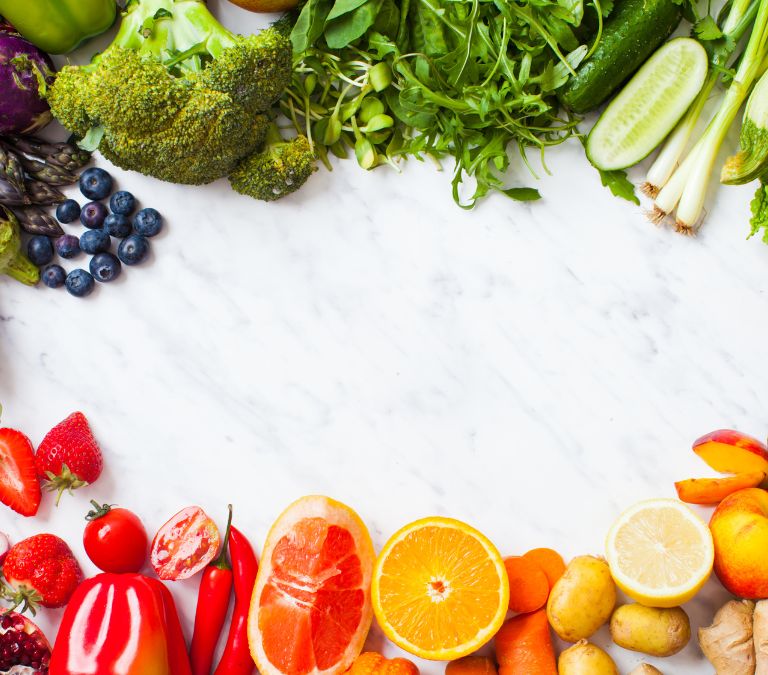
Vitamin C (ascorbic acids) in most citric fruits like grapes, oranges, tangerines, mangoes, dried fruits, apples, apricots, bananas, peaches, etc., is known to possess great antioxidants and anti-inflammatory properties – this makes it excellent for managing most menopausal symptoms associated with oxidative stress.
Fruits are also rich in other vitamins like vitamin D and Bs – thiamine, riboflavin, niacin, and folates, which are excellent in maintaining the arterial walls; and certain minerals like magnesium, potassium, and calcium notable for improving heart function through the prevention of pressure build-up in the walls of the arteries.
Fruits are loaded with fibers and potassium, both of which target the reduction of systolic pressure build-up in the walls of the blood vessels, thereby checking hypertension and boosting cardiovascular health.
It is advised that women in the menopause transition stage take at least four (4) servings of fruits daily as part of their diet as it will help boost their cardiovascular health and help improve their general health regarding menopausal symptoms.
Leafy Green vegetables

Leafy Vegetables – like kale, collard greens, spinach parsley, broccoli, etc.- are rich in antioxidants, vitamins, and minerals like potassium, which lowers blood pressure. They contain vitamin K, which functions excellently in promoting blood clotting and protecting arterial walls.
Leafy green veggies are high in dietary fibers, which help to reduce stiffness in the walls of the arteries, in turn improving blood pressure; this explains the relationship between the intake of vegetables and decreased risks of cardiovascular diseases such as stroke, heart attack, and high blood pressure.
A recent study has shown that increased intake of green leafy vegetables by menopausal women significantly reduced the risk of cardiovascular diseases.
Leafy Green veggies are also rich in vitamin Bs – especially Folic acid which helps maintain the wall of arteries by degrading an amino acid called homocysteine – a precursor to cysteine, an amino acid notable for damaging the inner arterial walls – this degradation immunes the heart against stroke.
Another important content of leafy and cruciferous vegetables is nitrates. Nitrates are great for the blood vessels – the arteries, veins, and capillaries as they act as vasodilators to these tubes, preventing clogging and plaque formation in the vessels while promoting normalized blood pressure and preventing atherosclerosis.
Whole Grains
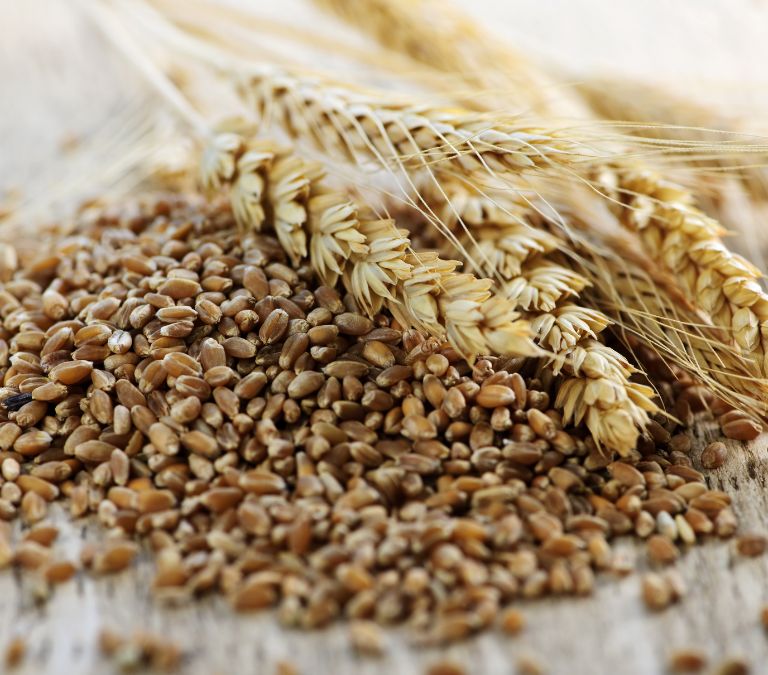
Whole grain is the general name given to seeds from the cereal family and some non-grass plants called pseudo-cereals; and are notable for possessing three (3) layer parts – the brain, endosperm, and gem.
The bran is usually packed with fibers, antioxidants, and an abundance of minerals; the middle layer (endosperm) contains carbohydrates, especially while the gem (inner layer) is loaded with Phyto compounds (plants chemicals like anthocyanins, polyphenols, flavonoids, and quercetins), quality proteins, vitamins, and minerals.
Whole grains like oats, rye, barley, brown rice, whole wheat, buckwheat, and quinoa have been associated with the management of hypertension. Whole grains are rich in sodium and contain low fats, which are excellent markers of healthy cardiovascular functions. Whole grains are also rich in dietary fibers which help regulate blood sugar, which invariably prevents obesity and type II diabetes, which is closely associated with heart problems.
Menopausal women are advised to replace refined grains while whole grains, as most refined grains do not have extra nutrients, as the endosperms and gems of refined grains have been removed.
High-Quality Proteins and Legumes
Heart-friendly proteins like fish, poultry, beans, nuts, and low-fat dairy products have been confirmed to be very good in managing cardiovascular risks in menopausal women. These proteins and nuts contain many amino acids that are very important for maintaining the walls of the blood vessels. The low fats they contain are great in managing cholesterol levels and invariably managing obesity and atherosclerosis.
Aside from containing numerous amino acids, nuts like walnuts, groundnuts, and legumes are also rich in micronutrients like magnesium, manganese, and copper; and fibers which are very beneficial to cardiovascular health by reducing the low-density lipoproteins.
Beans, one of the most common high-quality proteins, contain resistant starch, which helps maintain blood sugar levels and manage obesity, a leading risk factor in developing cardiovascular diseases, especially in women in the menopause transition stage. Consumption of beans and legumes has been linked closely to reduced blood pressure and inflammation.
Dairy Products
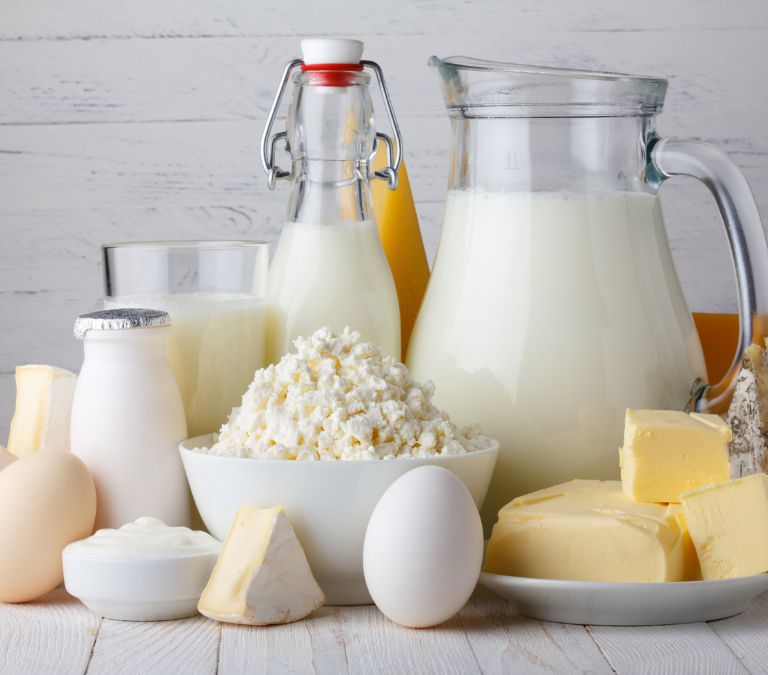
Dairy products such as eggs, cheese, milk, etc. are mostly rich in vitamins and minerals that are of great benefit to the heart; they possess, most importantly, healthy fats like high-density lipoproteins contained in the white of eggs that help to mop up bad cholesterol and return them to the liver for emulsification thereby reducing the risk of clogging the blood vessels and the resultant high blood pressure and stroke.
Dairy Products are also rich in essential amino acids that are precursors to important enzymes that help catalyze some important steps in certain hormone production, like the estradiol – precursor of estrogen and progestin pathways, which help manage the hormonal imbalance in menopausal women and accompanying symptoms.
Healthy Fats
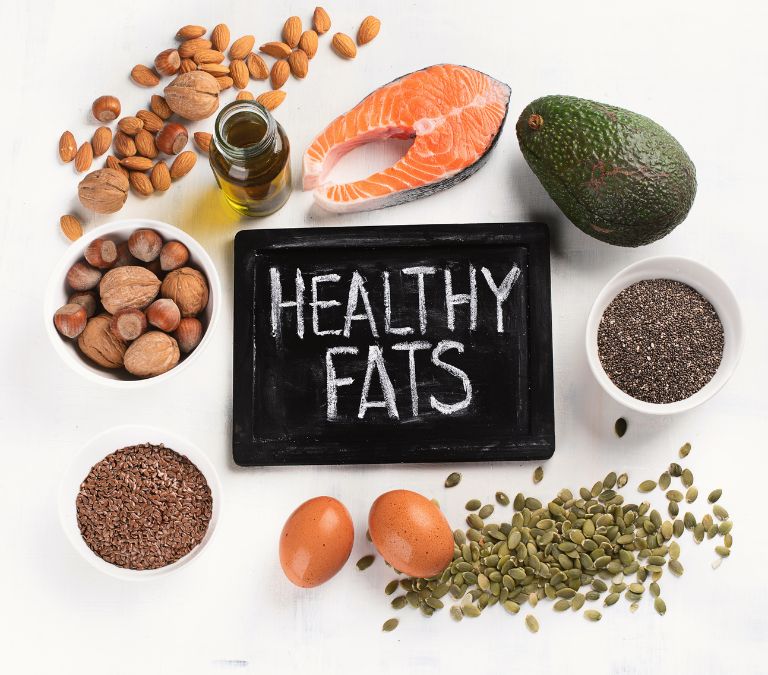
Foods rich in healthy fats like omega-3 fatty acids are notable for being heart-friendly as these omega-3 fatty acids play protective roles in the heart by lowering total cholesterol level, systolic blood pressure, blood triglycerides, and fasting blood sugar.
Many diets rich in healthy fats can help menopausal women keep cardiovascular risks at the barest minimum. These diets include fatty fish meals like sardines, tuna, trout, salmon, and mackerel; fish oils and omega-3 supplements like algal and krill oil.
Omega -3 fatty acids are an important source of healthy fats as they help reduce irregular heartbeat and lower blood vessels’ clogging by plaque – a substance made up of aggregates of triglycerides, cholesterol, and mineral deposits that harden the arterial walls.
Omega -3fatty acids are also important in the management of inflammation resulting from oxidative and cancer from cell proliferation and angiogenesis,
Another interesting fact about omega-3 fatty acids is that they contain polyunsaturated fats needed for brain cells development and repairs- maintaining the cell walls of cranial cells – managing cell aging and accompanying dementia and depression, especially in menopausal women, and cardiovascular cells and thus improving the cardiovascular health.
Therefore, women undergoing menopause can get a lot of nutrients and benefit from the consumption of at least one meal serving a day that contains omega-3 fatty acids as it will help maintain their general well-being, especially lowering their risks of developing cardiovascular diseases like stroke, hypertension, obesity, heart failure, atherosclerosis, and heart attack.
Foods rich in calcium, Vitamin D, and magnesium
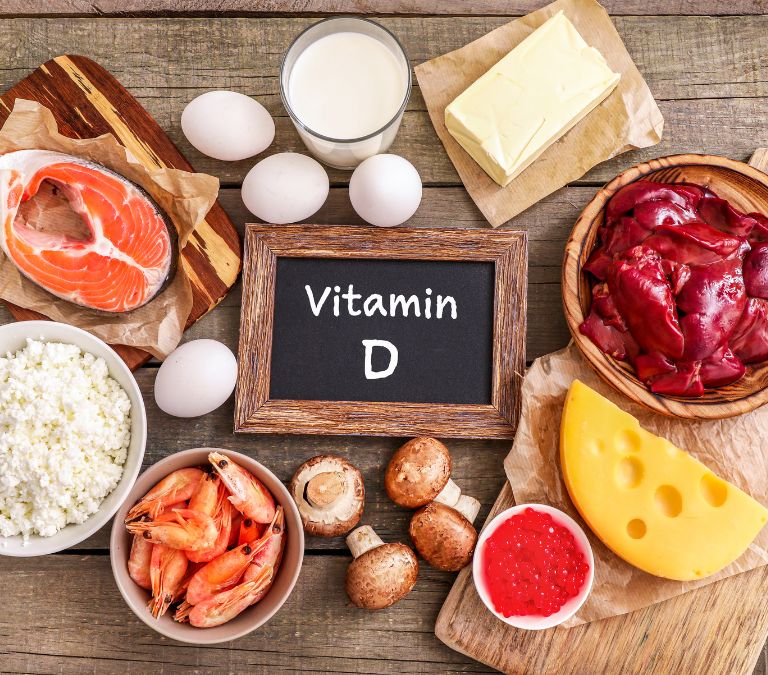
The consumption of foods rich in calcium, vitamin D, and magnesium like fruits, veggies, both green and colored, cheese, milk, yogurt, etc., by menopausal women has shown great improvement to their bones and muscles function, which invariably offers positive protection to the heart muscles as well thereby helping them reduce the risk of heart attack, heart failure, and stroke.
Calcium is important in muscle contraction and dilation, intracellular signaling, adenosine triphosphate (ATP) production, nerve impulse transmission, and vascular and muscular toning.
The gut cannot absorb calcium into the bloodstream in the absence of vitamin D, so both of them are supplemented together.
Magnesium is an essential mineral as it helps the heart rhythm and helps transport other mineral elements like calcium and potassium into the cells, thereby helping to manage the heartbeat.
Magnesium, most importantly, protects the heart from atrial fibrillation – a disease condition where the upper part of the heart is quivering due to a bridge following electric signals and impulses.
These minerals are also abundant in sea and shell foods and are recommended heavily for menopausal women to boost their cardiovascular health.
Foods rich in Phytoestrogens
Foods rich in plant estrogens like dark berries, soybeans, chickpeas, broccoli, cauliflower, etc. are great for women in menopause transition as they tend to release flavonoids that mimic estrogen both in structure and functions, thereby giving the body all the benefits it has been deprived by the decline in the ovarian estrogen level.
Phytoestrogen contains isoflavones that can lower low-density lipoproteins (LDL) and their oxidation, thereby normalizing vascular re-activities. They are also involved in inhibiting angiogenesis and the effects of angiotensin in converting enzymes in cell and cancer proliferation.
These phytoestrogens reduce menopausal symptoms like hot flashes, anxiety, and sweaty nights and, most importantly, manage cardiovascular health and reduce the risk associated with weight gain and heart diseases.
Flax and Chia Seeds
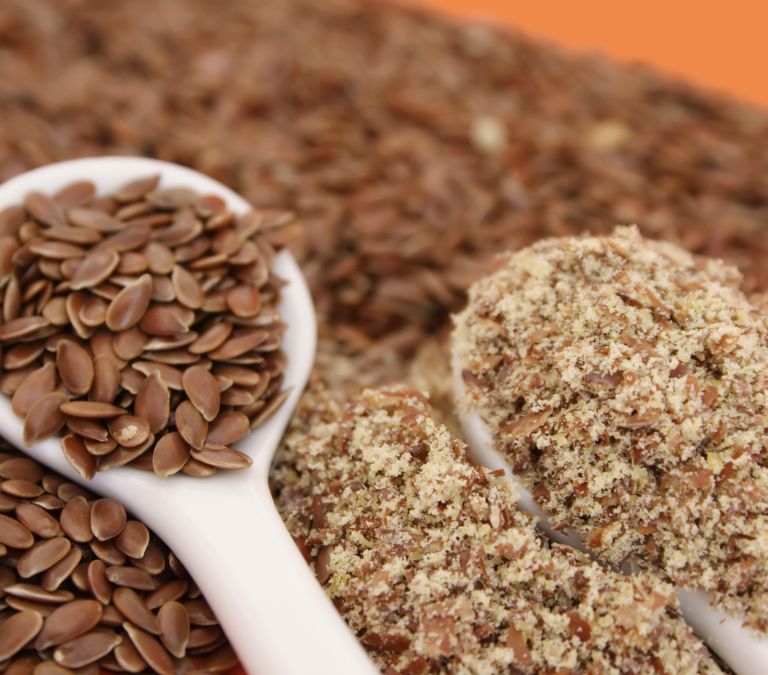
Incorporating seeds in diets, especially by women in menopausal transition, has shown to offer great benefits to cardiovascular health as seeds like flax seeds, hemp seeds, and chia seeds are all rich in dietary fibers and omega-3 fatty acids.
As stated earlier, dietary fibers and omega-3 fatty acids greatly reduce inflammatory markers associated with the risks of heart disease.
Dietary fibers are known for containing resistant carbohydrates rarely released into the bloodstream, checking blood sugar, type II diabetes, and ultimately obesity, one of the leading factors of heart diseases.
Omega-3 fatty acids are great in lowering blood triglycerides, low-density lipoproteins (bad cholesterol), inflammation caused by oxidative stress and its accompanying cell deaths; and increasing high-density lipoproteins (Good Cholesterols), which help boost cardiovascular functions.
Studies have found that hemp seeds are rich in arginine, an essential amino acid associated with the degradation of notable blood inflammatory markers, which wears the muscles down, including heart muscles, and contributes to the risk of heart failure.
Unsweetened Yogurt

Unsweetened yogurt is a low-fat dairy product highly associated with improving healthy cholesterol levels and maintaining good blood pressure.
The consumption of unsweetened yogurt in menopausal women can help maintain a healthy weight as unsweetened yogurts are low in calories and fats yet make one feel full.
Yogurts are good sources of high-quality proteins essential for maintaining the heart and blood vessel cells.
Yogurts are also rich in calcium – one of the important minerals essential for maintaining muscle cushioning and relaxation, especially the heart muscles, thereby maintaining healthy cardiovascular functions.
Some unsweetened yogurts are packed with probiotics – beneficial microorganisms like bacteria (lactobacillus spp.) and fungi (saccharomyces spp.) that are beneficial in managing vagina dryness and low sex in menopausal women.
Berries
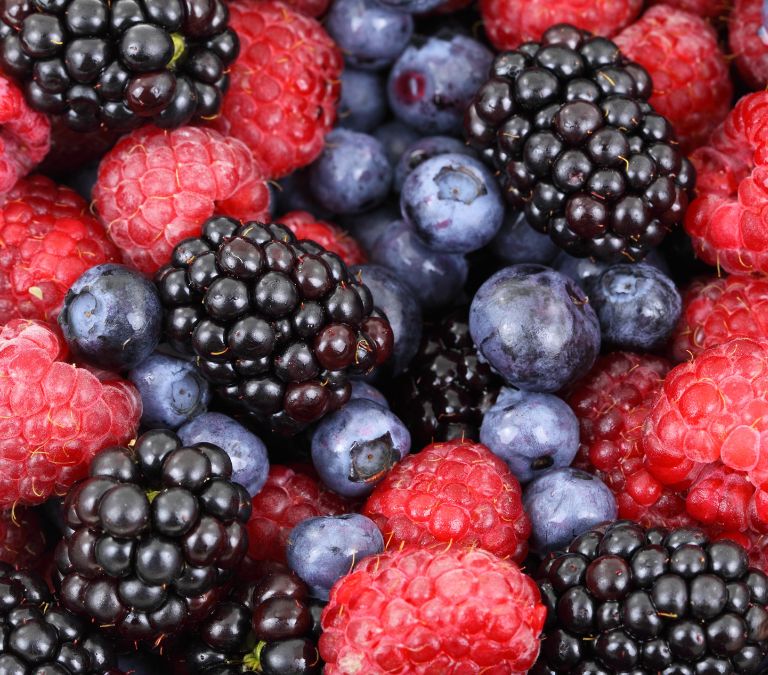
Blueberries, raspberries, strawberries, and blackberries are rich in phytochemicals called anthocyanins which possess great anti-oxidative properties and protect the heart against oxidative stress and inflammation that usually serves as biomarkers for increased risk of cardiovascular diseases.
Recent studies have shown that consuming strawberries at least 2 every day improved insulin utilization and lowered low-density lipoprotein in menopausal women.
Blueberries’ daily consumption has also been proven to improve the function of the cells of the arterial walls – controlling blood pressure and clotting.
Berries are generally low in calories and great for weight management, which ultimately reduces the risk of obesity, one of the leading factors of different coronary diseases.
Green tea
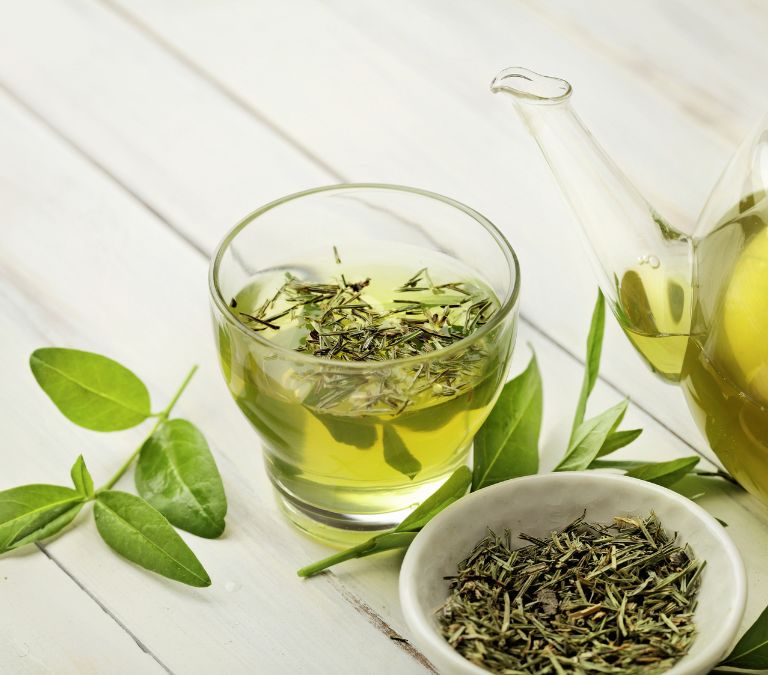
Green teas are rich in phytochemicals like flavonoids, polyphenols, catechins, anthocyanins, quercetins, and antioxidants that are very important in managing cell damage, cell proliferation, inflammation, and oxidative stress, which usually lead the cardiovascular dysfunction.
Green teas are great fat burners because they are notable for increasing insulin sensitivity and subsequent blood sugar utilization.
Studies have proven that taking green teas, especially by menopausal women, results in increased leptin levels and a decrease in low-density lipoproteins (bad cholesterol), which causes the blood vessels to be free, maintaining healthy heart functions.
Leptin is a hormone known as satiety hormone produced by the brain that regulates food consumption – decrease in leptin level has been associated with a decrease in estrogen and has been linked closely with uncontrolled weight gain and the resultant obesity accompanying menopause; therefore, any diet that improves the level of leptin in the bloodstream will invariably manage weight loss and prevent obesity which is one of the factors contributing to the increased risk of cardiovascular diseases.
Avocados
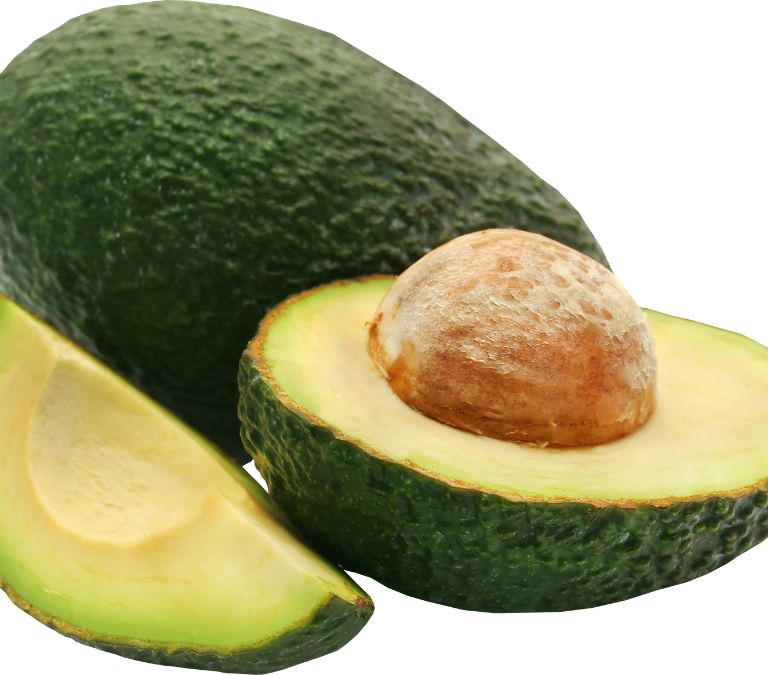
Avocados are a great source of heart-friendly unsaturated fats, which are closely linked with the reduction of bad cholesterol levels leading to a reduced risk of cardiovascular diseases.
The consumption of avocado by women from 45 and above has reduced low-density lipoproteins (LDL) and blood triglycerides, increasing the risk of stroke, systolic and diastolic blood pressure, and other coronary diseases.
Avocados are also rich in minerals like potassium, magnesium, etc., confirming their potency in managing cardiovascular functions as potassium is an essential heart nutrient that maintains good heart rhythm and pressure within the blood vessels.
Almonds
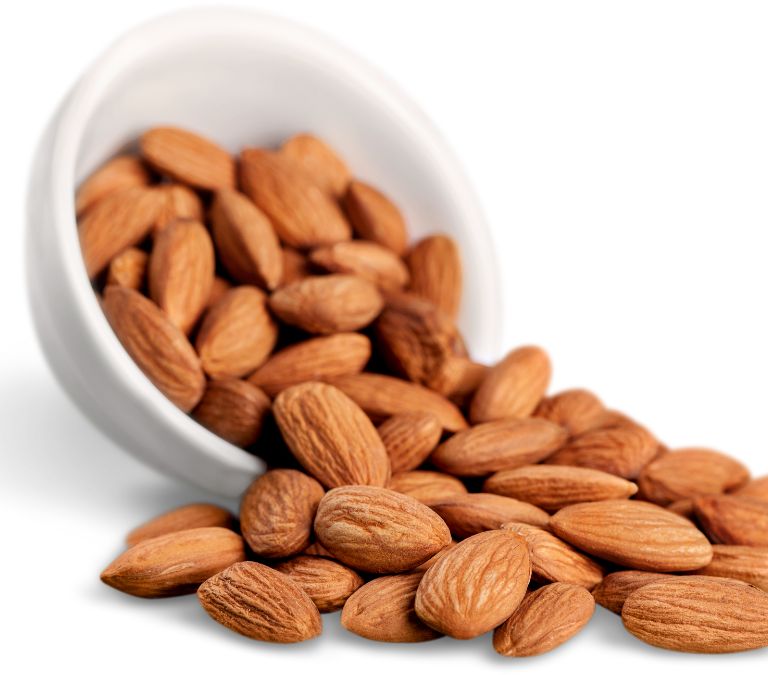
Almonds are a nutrient-packed plant-based diet that is of great help during menopause as it is densely saturated with vitamins and minerals essential for healthy heart functioning.
Almonds are great for mopping up bad cholesterol from the bloodstream, thereby preventing the clogging of the blood vessels by fats and the resultant high blood pressure and stroke.
Almonds are also rich in monounsaturated fats and fibers, which help to manage blood sugars, obesity, and general cardiovascular functions. Monounsaturated fats also help reduce plaque in the arterial walls, thereby improving systolic and diastolic blood pressure.
However, the consumption of almonds by women in the menopausal stage is to be checked as the proximate analysis shows it is high in calories, so moderation in its intake is necessary for others to achieve the desired result.
Olive Oil
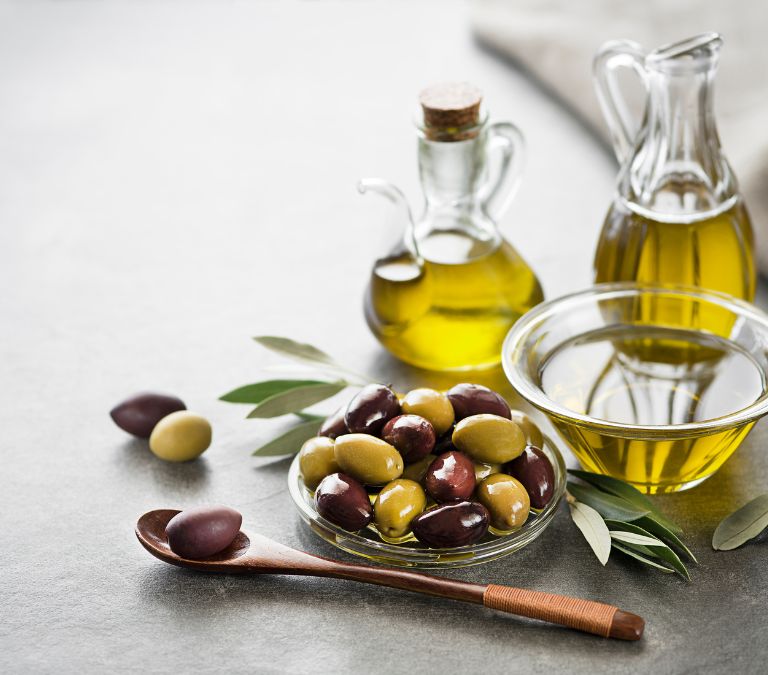
Foods made with olive oil are advised for women undergoing menopause as olive is known to be rich in antioxidants which are effective in relieving inflammation caused by oxidative stress, and monounsaturated fats which are notable for providing the body with good cholesterol and reduction in the low-density lipoproteins (LDL) which usually cause plaque formation in the walls of blood vessels often leading to a condition known as arteriosclerosis a leading a factor the development of hypertension.
Olive oil has also been found to be rich in oleic acids, an important fatty acid associated with the prevention and management of hypertension.
Conclusion
There is great evidence of the link between dieting lifestyle in women before, during, and after menopause and risks of cardiovascular health compromises.
Menopausal women are therefore advised to look out for heart-friendly foods that can help boost their cardiovascular health; diets that can manage arrays of heart-related issues like stroke, hypertension, irregular heartbeat, palpitations, atherosclerosis, heart failure, and heart attack – as the saying “we are what we eat” remains ever true irrespective of age, race, ethnicity, and stage in life.



